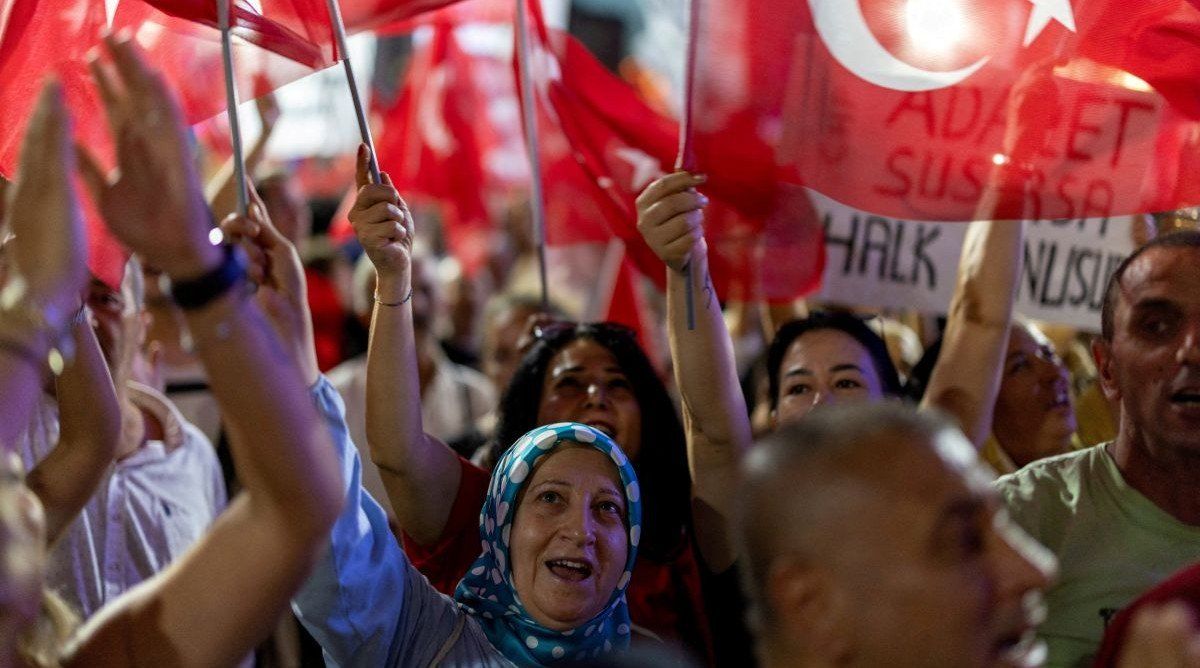After a weekend of mass protests in Turkey, a court in Ankara has postponed its decision in a highly charged case that could oust Turkey’s main opposition leader – and boost the fortunes of long-time President Recep Tayyip Erdoğan. The case comes amid a crackdown against Erdoğan’s political opponents, hundreds of whom have been jailed on accusations of corruption and terrorism, including Erdoğan’s main rival, Istanbul Mayor Ekrem İmamoğlu. Ahead of elections that must be held by 2028, Erdoğan stands accused of attempting to extend his 22-year hold on power by any means necessary, and at the cost of democracy itself.
What’s the case about?
The case alleges vote-buying and procedural irregularities at the 2023 congress of Turkey's principal opposition party, the Republican People’s Party (CHP), which removed former leader Kemal Kılıçdaroğluand elected current chairman Ozgur Özel. The court was supposed to rule on September 15, but has now postponed the decision until October 24.
The CHP rejects the corruption claims, withÖzel accusing Erdoğan of launching a “judicial coup” in response to his party’selectoral victories in 2024, and rising public support. Erdoğan denies this, but in May he commissioneda redraft of the country’s constitution, raising fears that he intends to manipulate the law to allow him to run for a fourth term.
What could happen if Kılıçdaroğlu is reinstated?
The former leader’s reinstatement could sow conflict inside the party between old guard and new, thereby demoralizing some of its base. On the other hand, such a decision could also backfire and galvanize the opposition, like several of Erdoğan’s other recent moves. İmamoğlu’s arrest provoked the largest protests in Turkey in over a decade, while the spate of opposition arrests and court battles has turned Özel into a popular protest figure as well.
What’s at stake for Turkey?
Electoral freedom. “This is a serious moment that signals a regime change in Turkey from a competitive authoritarianism, in which opposition parties could still win elections, to a kind of hegemonic authoritarianism, in which they are more symbolic and unable to win,” said Seren Selvin Korkmaz, co-founder and co-director of IstanPol Institute, an Istanbul-based think tank.
The West – and the rest – are watching
If Turkey slides towards authoritarianism, it couldn’t come at a worse time for the West. Erdoğan has long attempted to strike abalance between the country’s NATO partners and Russia, notably on the war in Ukraine. But some of his foreign policy positions, including on Israel’s war with Hamas, have distanced Ankara from Western allies. Add to that US President Donald Trump’s recentultimatum to NATO countries to stop buying Russian oil – which Turkey does – and Greece’s objections this week to Turkey joining the Security Action For Europe, and it’s not hard to see how Erdoğan might find more kinship with Moscow than with Europe or Washington.
The big picture
The court’s decision on October 24 will be part of a larger test for Turkey: can democratic institutions, including courts, elections, and civil rights, survive Erdoğan’s crackdown? Or will they be hollowed from the inside, leaving opposition parties in name only, and Turkish citizens no other option than to take to the streets? More unrest could cause Erdoğan to further curb civil liberties, leading Turkey further down the path of authoritarianism – and away from democratic alliances.
